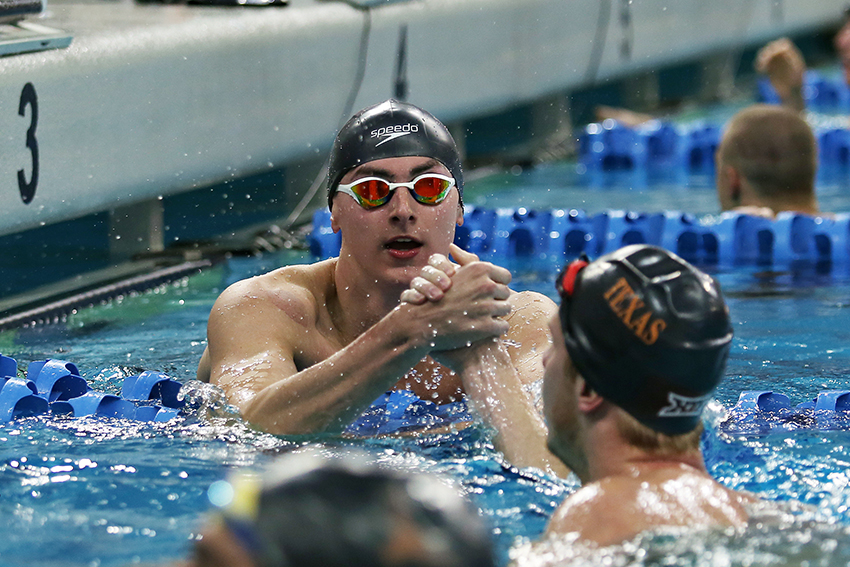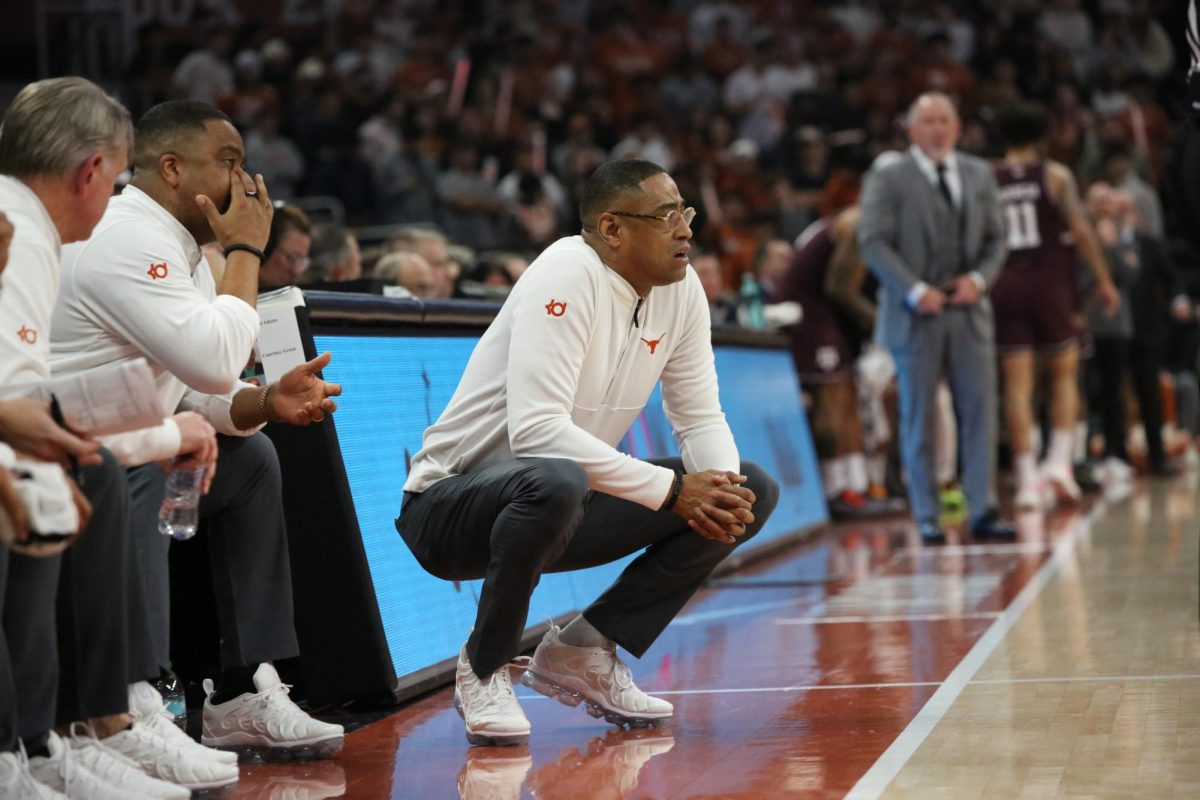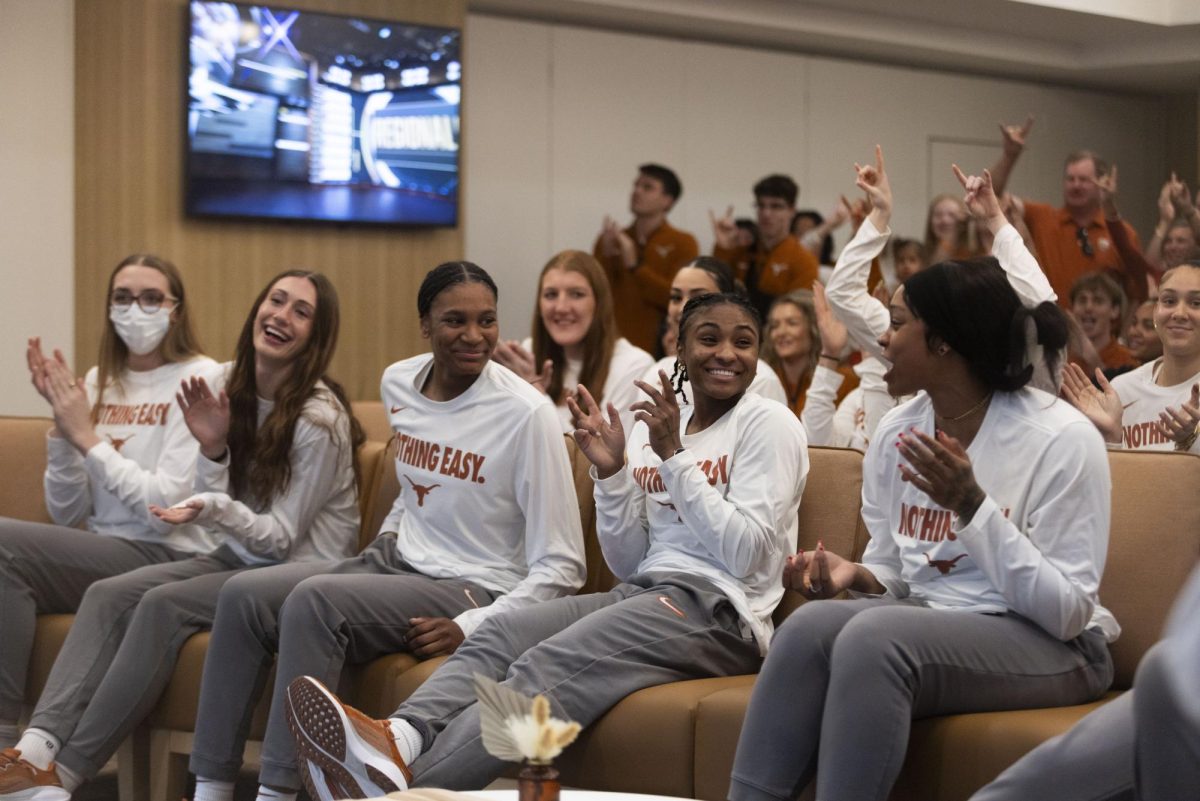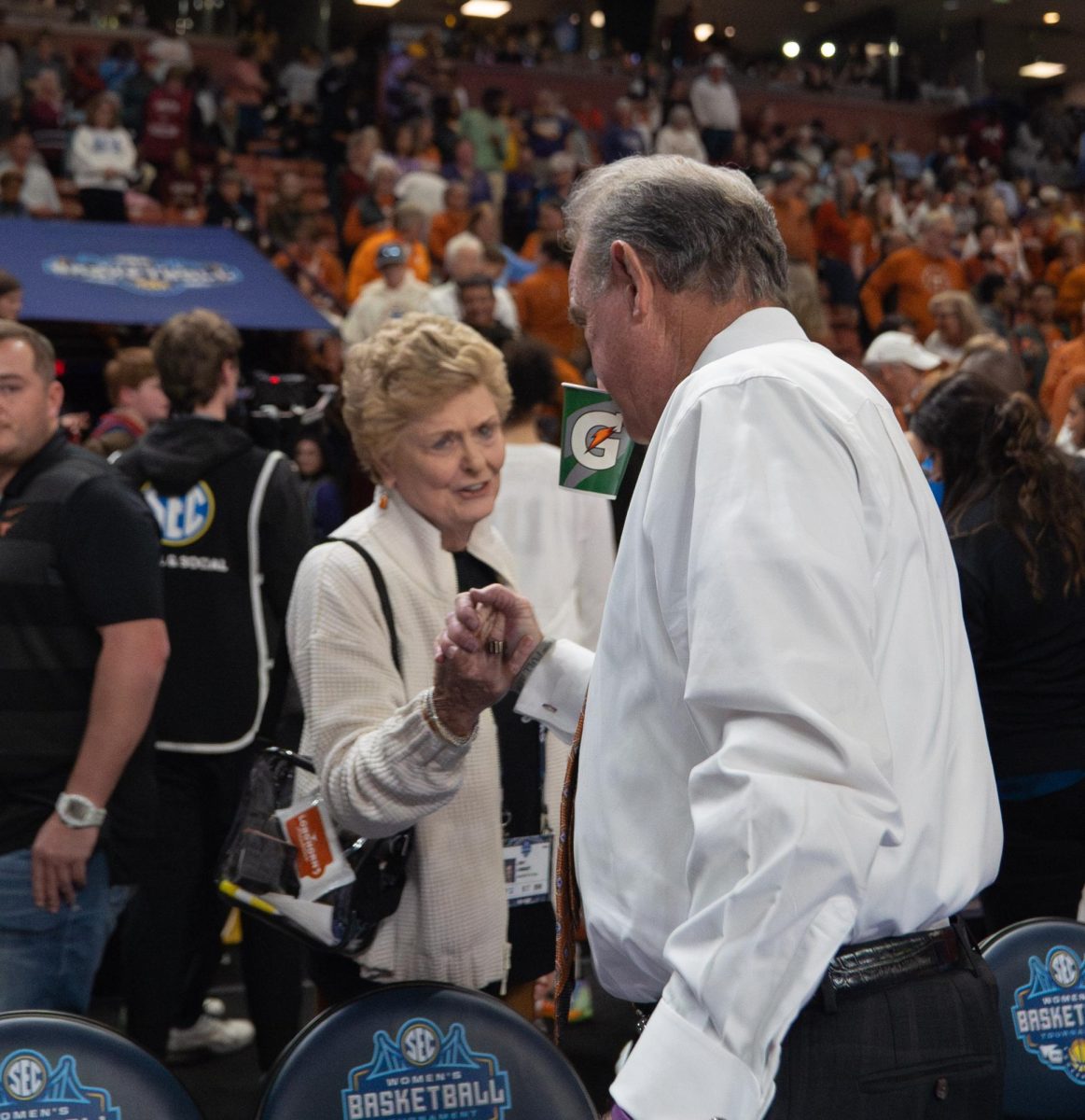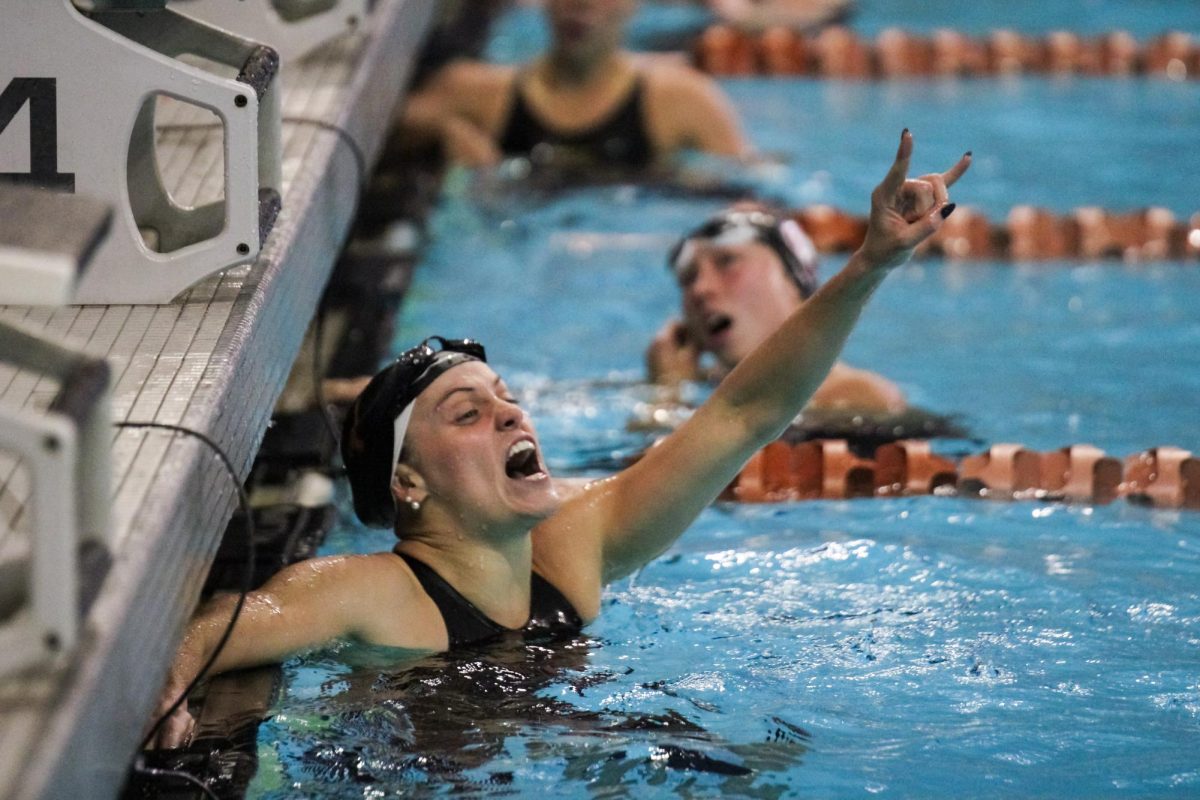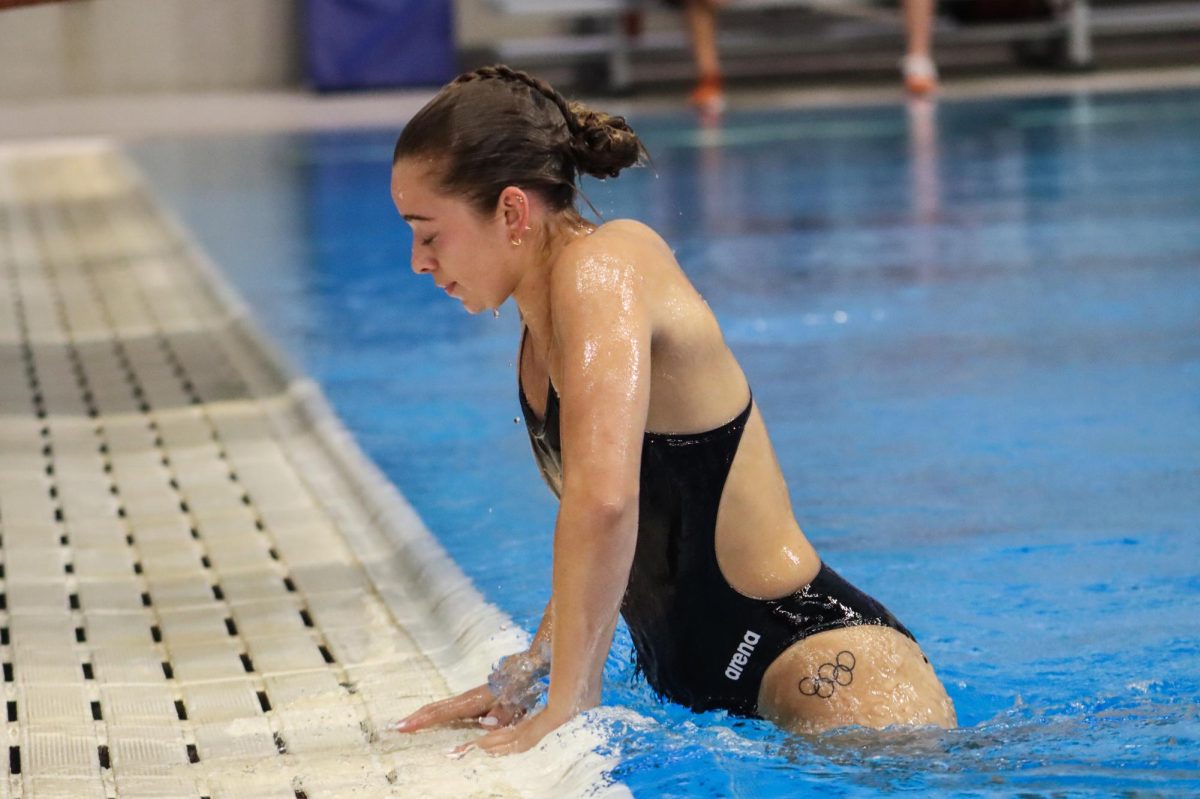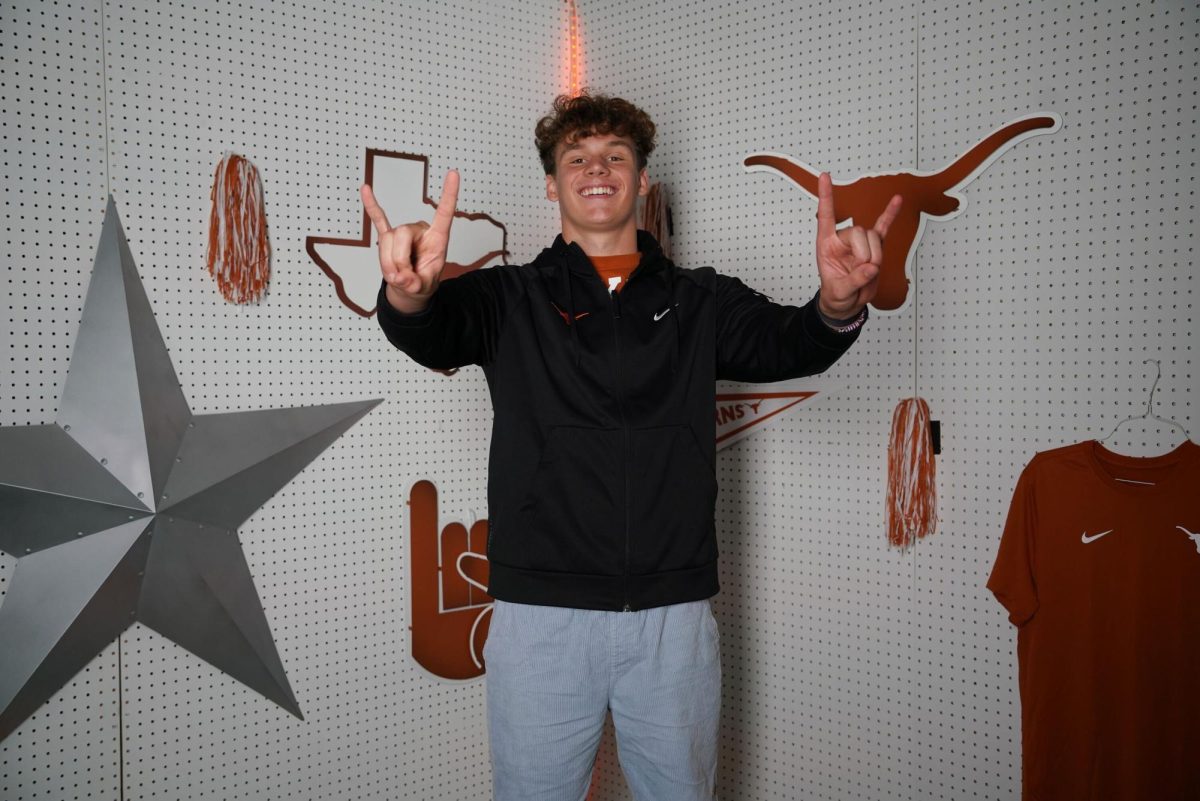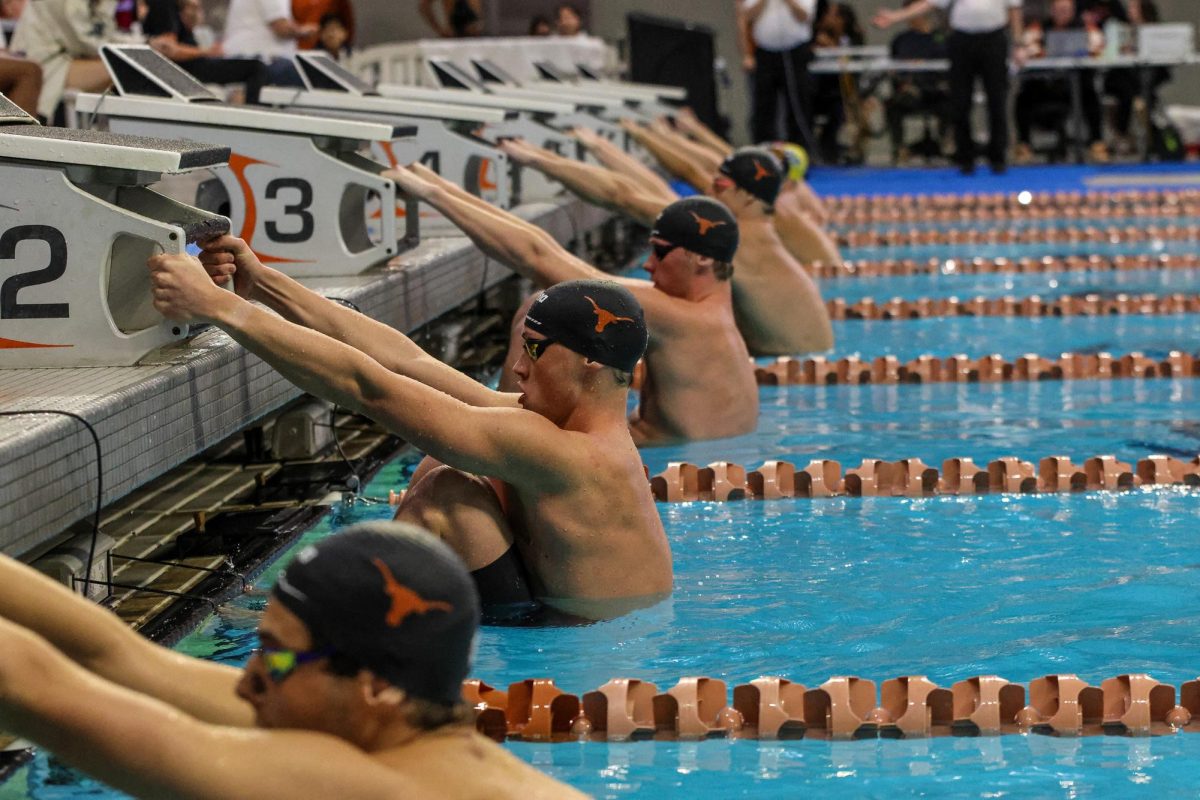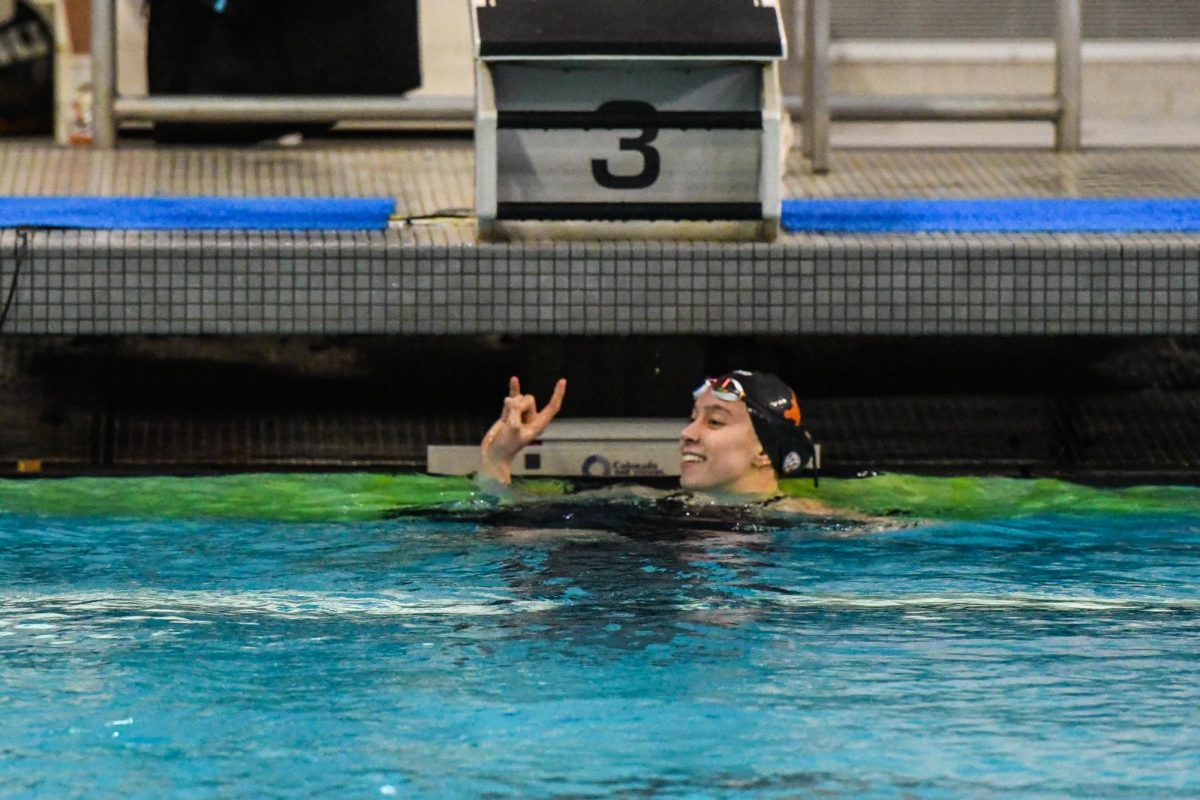As conferences began to pull out of major NCAA tournaments in March due to coronavirus concerns, the Texas men’s swimming and diving team first found out that the upcoming national championships was canceled from a tweet on March 12.
While they understood the possibility of the NCAA canceling the championships in response to the global pandemic, they were still in shock when they read the NCAA’s statement. The cancellation left 270 Division I men’s swimmers and divers without an end to their season — the NCAA championships, scheduled for March 25 in Indianapolis, were canceled before they could begin.
“We were about to enter the water,” senior Maxime Rooney said. “(Texas head coach) Eddie (Reese) had just given us a set. We had gotten the notice, and you can see the disappointment in people’s faces. I needed to get in the water and swim it off a little bit to clear my head.”
For seniors Jack Collins and Rooney, the news was especially heartbreaking. March 25’s championships was set to be their final meet competing for the Longhorns.
Both Collins and Rooney had previously swam at other Division I schools and transferred to Texas looking for a change of scenery. Yet in their final year with the Longhorns, the duo couldn’t compete for Texas’ fifth national championship in the last six years.
“For every athlete, being at Texas is a dream come true,” Collins said. “Being able to swim at a place like this with a coach like Eddie is amazing.”
While extra eligibility was being discussed for spring athletes after the NCAA’s initial decision, winter athletes were stuck in limbo. Many of their seasons had come to a close, and there was not a clear idea if the NCAA would allow an extra year of eligibility or if these championships would be rescheduled. The NCAA was set to take a vote March 30 to finalize their decision.
“We found out through the grapevine that a vote on eligibility (would be) on March 30,” Collins said. “We realized that we had a week. We went to morning practice and started to brainstorm on ideas to be heard.”
In order to get their voices out, Collins and Rooney decided to write a letter to NCAA President Mark Emmert to voice their opinions. They called their letter “A Voice for Senior Athletes.” Through Instagram, they asked for any senior NCAA swimmer and other athletes to reach out to share their story.
“We realized that in one week, we could only do so much and reach out to so many people,” Collins said. “We decided to speak out as senior athletes because we would be able to represent them the best.”
The swimming community largely supported them and was willing to speak up for senior athletes. Athletes from across the country began to share their stories with Collins and Rooney. They estimate that athletes reached out to them from about 20 different schools.
Texas senior Josh Artmann decided to submit his story after receiving a text from Rooney.
“I felt like it was better to do something than nothing, and it could potentially open up a lot more options for other people,” Artmann said. “We were lucky to have as much of the season that we could get, but it was disappointing not to compete.”
Felix Auböck, a University of Michigan senior and 2016 Austrian Olympian, was contacted by Collins to be included in the letter. The decision for him was a quick and easy one.
“It was important because, especially in swimming, everything is built up for the last meet of the season,” Auböck said. “Nothing really matters besides that last meet. You compete in meets the whole year that essentially did not matter as much but helped with preparation. It was hard as a senior to see that taken away.”
After the decision, Auböck has made the transition to a professional athlete.
Coleman Stewart, North Carolina State senior and NCAA champion, first found out about the letter after Collins contacted him through Instagram. Stewart knew his season was over when the ACC canceled their athletic events for the rest of the season during one of his practices. Less than an hour later, he found out that NCAA championships had been canceled as well via Twitter.
“It was pretty heartbreaking to have put in all of that work for the season and have it ripped away,” Stewart said. “It was definitely the right decision, but it was hard to accept. I personally had unfinished business from last year, and not being able to write the end of that chapter has been pretty tough so far.”
Ultimately, the NCAA’s vote on March 30 only gave spring athletes extra eligibility, canceling the rest of the winter sports season and their championships. Collins and Rooney once again found out via Twitter. Their careers on a team they described as “special” was officially cut off without the chance for closure or a storybook national championship ending.
“While the decision was expected, not being able to compete for Texas one last time hit them hard,” Collins said. “We had a very special team, and what hurts the most is that we did not have a chance to showcase that at the biggest stage.”

